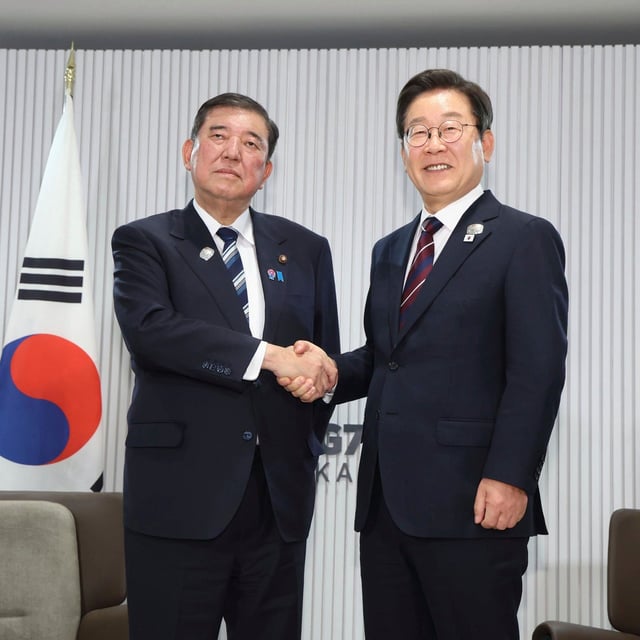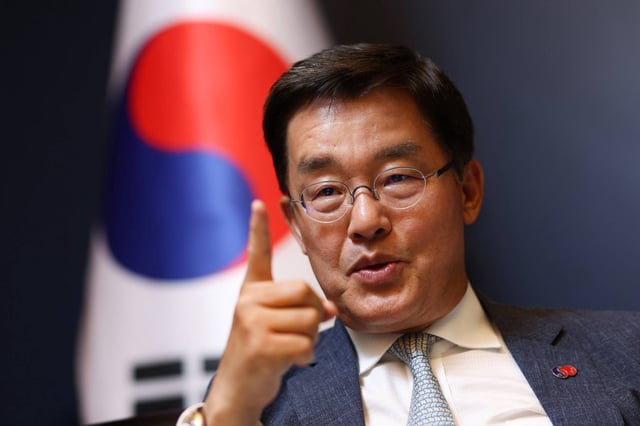Overview
- Prime Minister Shigeru Ishiba publicly acknowledged Japan’s wartime aggression and expressed empathy to Asian victims at a Tokyo reception
- President Lee Jae Myung is building on his predecessor’s pragmatic outreach to Tokyo despite calls in Seoul for stronger Japanese apologies
- At their first G7 summit meeting, Ishiba and Lee agreed to enhance joint monitoring of North Korea’s nuclear and missile programs
- Both governments face mounting pressure to formulate a unified response to President Donald Trump’s proposed auto tariffs that threaten export-dependent economies
- Historical grievances over wartime forced labor and the treatment of comfort women continue to undermine trust despite renewed economic and security dialogue


